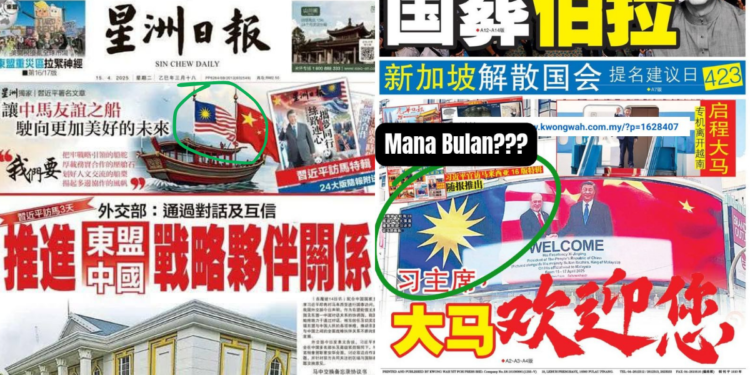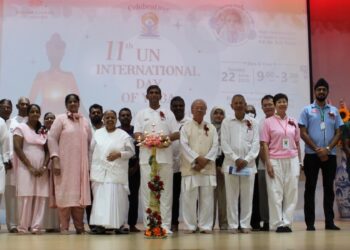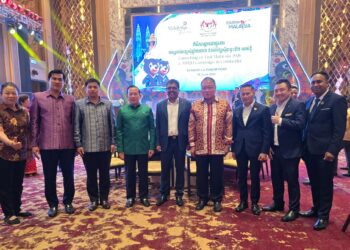KUALA LUMPUR – What started as a glaring design error in two major Chinese-language dailies Sin Chew Daily and Kwong Wah Yit Poh, has turned into a firestorm of public outrage, with Malaysians taking to social media to express their anger over the depiction of the Jalur Gemilang without the crescent moon.
The omission of the crescent moon, which symbolizes Islam as the religion of the Federation, was prominently featured on the front pages of both newspapers in recent days. Although both publications have since issued public apologies, Malaysians from all backgrounds are not satisfied; citing national pride, constitutional symbolism, and editorial responsibility.
“An apology is not enough”
Social media has been flooded with posts from netizens demanding disciplinary action beyond a mere apology, with many pointing out that such a mistake would have passed through multiple editorial gates before publication.
“An editor must have approved that page. Saying sorry isn’t enough. Just like the DJ ERA case, disciplinary action should follow,” wrote one netizen on Isu Semasa Online’s Facebook page.
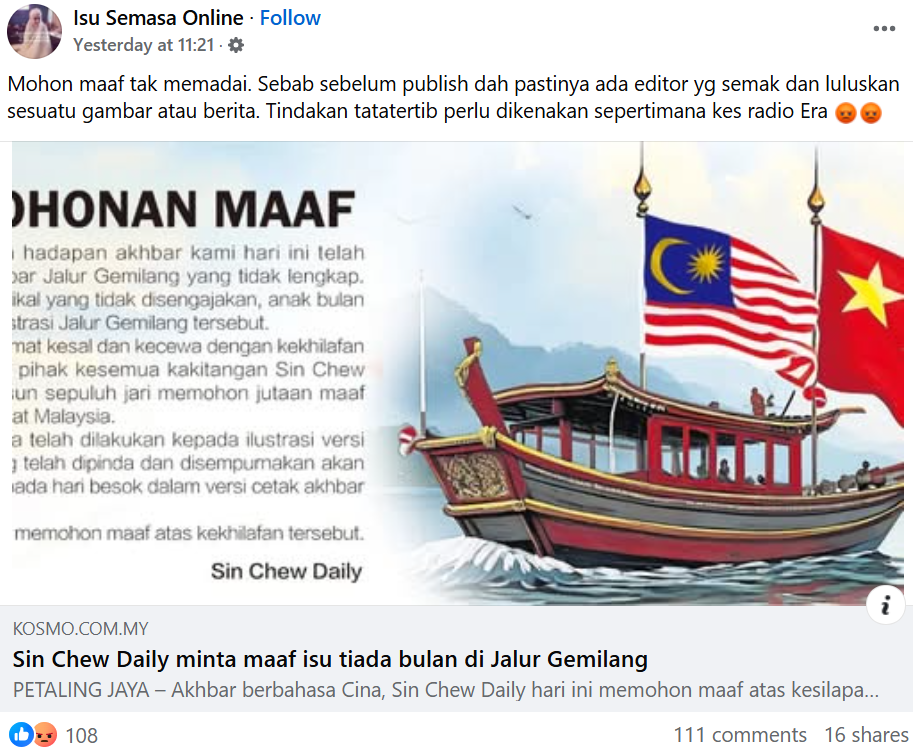
Others raised the legal implications of the incident, pointing to the Printing Presses and Publications Act 1984 (Section 8A) and the Emblems and Names (Prevention of Improper Use) Act 1963 (Act 414), both of which carry serious penalties for misrepresentation or false publication involving national symbols.
“This is not just about a design error. This is about violating the dignity of our national flag,” wrote Facebook user Mudalib Uthman. “Section 3 of Act 414 allows for a fine of RM20,000 or three years’ jail or both. Don’t just let this go with a slap on the wrist.”
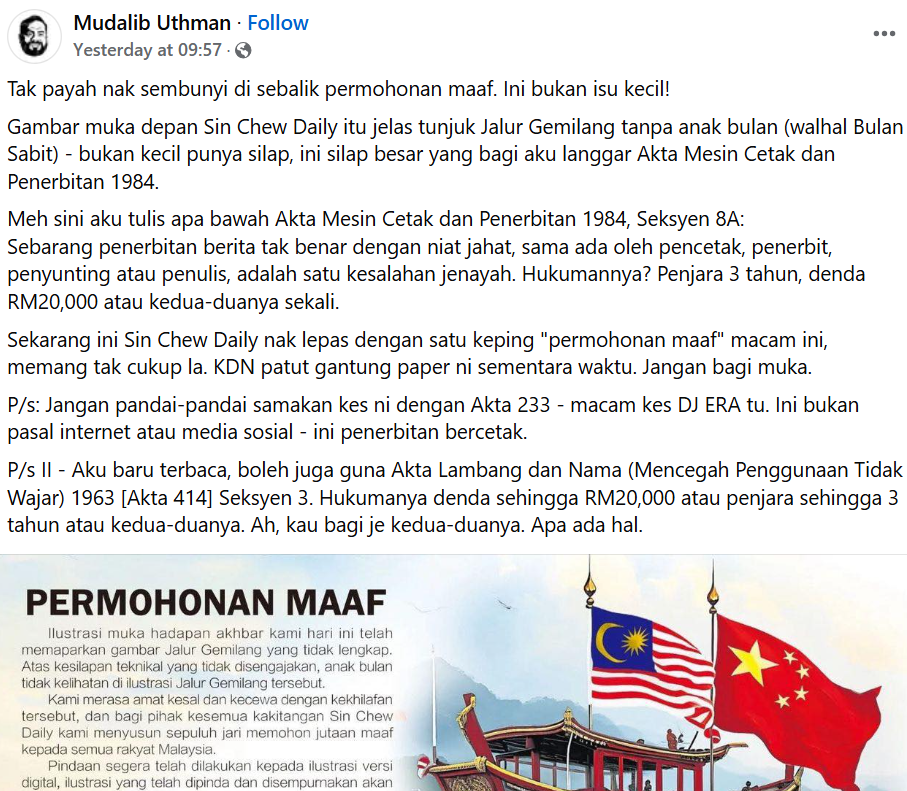
“Where’s the accountability?”
Many commenters expressed disappointment that no firm action has been announced against the editorial teams of the publications involved. Comparisons were drawn to previous incidents where radio hosts and public figures were suspended for perceived insults or controversial remarks involving national identity or sensitivities.
“Nabil Raja Lawak was suspended for making jokes. What’s being done here when a national symbol is disrespected in print?” questioned another netizen.
Some highlighted what they saw as double standards, noting that the Chinese flag was printed correctly alongside the erroneous Malaysian flag, fueling suspicions about editorial diligence and priorities.
“Why is the Chinese flag perfectly correct, but our own national flag gets this treatment? Is your editor even a Malaysian citizen?” one post read.
Sentiments of patriotism and betrayal
For many Malaysians, the flag represents more than a symbol; it embodies national unity, history, and pride. Several posts were deeply emotional, with users describing their lifelong connection to the Jalur Gemilang and expressing how hurtful the mistake felt.
“I’ve lived in Thailand for 14 years but still go to the Malaysian Consulate to sing ‘Negaraku’ on Merdeka Day. That’s how much the Jalur Gemilang means to me,” wrote educator Joe Satun.
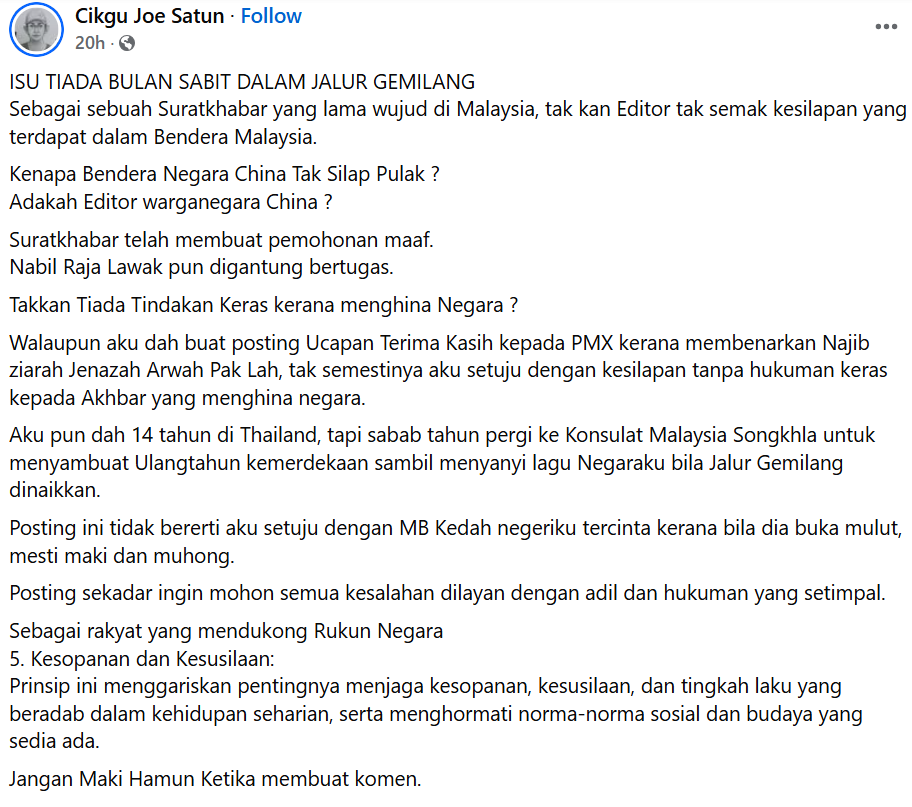
He added that while criticism must be fair and respectful, mistakes involving national dignity must be met with commensurate consequences.
Others called on Sin Chew Daily and Kwong Wah Yit Poh to go beyond generic apologies and issue formal explanations of how the error occurred, who was responsible, and what steps are being taken to prevent recurrence.
“Where is the statement that says disciplinary action will be taken against the responsible officers? At any other company, heads would roll,” said one user.
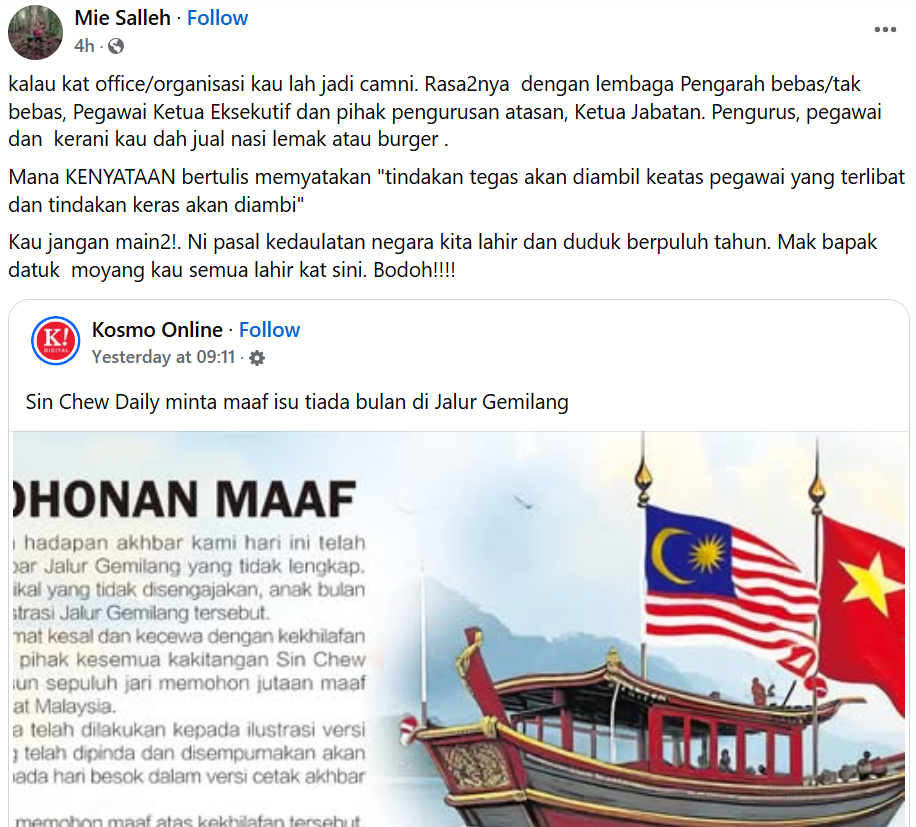
Ministry yet to respond
As of press time, the Ministry of Home Affairs (KDN) has not issued a formal statement on the matter, though pressure is mounting for regulatory intervention.
Analysts note that the incident comes at a sensitive time, with public scrutiny high over issues of national identity, unity, and editorial responsibility in a multiethnic society.
“This isn’t about race or language. This is about the flag that represents all Malaysians. Editorial mistakes happen, but when they involve national symbols, the stakes are far higher,” said a political commentator.
As Malaysia approaches Visit Malaysia Year 2026, calls for media professionalism and patriotism are growing louder, and this incident has reminded many just how important the details are when it comes to national pride. -MalayaDailyToday





















































